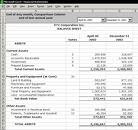 When you have decided to establish a factoring relationship to bolster your company's cash flow, you will not initially get the full amount of the invoice. You get an ADVANCE of the face amount of the invoice. The remaining amount, referred to as the reserve, is held back until the invoice is paid by the customer. The industry standard is to hold back a 20% reserve, but can be more or less depending on the type of industry, make-up of the company's customers, and other factors.
When you have decided to establish a factoring relationship to bolster your company's cash flow, you will not initially get the full amount of the invoice. You get an ADVANCE of the face amount of the invoice. The remaining amount, referred to as the reserve, is held back until the invoice is paid by the customer. The industry standard is to hold back a 20% reserve, but can be more or less depending on the type of industry, make-up of the company's customers, and other factors.
When an invoice factoring company promises a 97% advance rate, either you or your attorney should read the contract very carefully. Make sure you know what you're getting into.
Kent Harlan, CPA
Ozarks Capital Funding, LLC
www.ocflink.com
kenth@ocflink.com
417.849-7394
When you submit an invoice for factoring, funds get wired into your bank account for use to grow your business. But with invoice financing you do not get the full amount right away. You get an ADVANCE of the face value of the invoice. The industry standard in commercial financing is 80 % of the invoice is funded as the advance, while the 20 % is held back in RESERVE until the invoice has been paid by the customer. Once the invoice gets paid the fees are deducted from the reserve and the remainder is forwarded on to you.
While factoring companies normally advance 80 % of the invoice, sometimes the advance is lower (60 – 70%) due to issues associated with certain industries. Other accounts receivable finance companies do provide a higher percentage advance, but check the fine print because the great majority of factoring companies, like ours, have been utilizing the 80% advance for years because it is statistically to most secure method.







